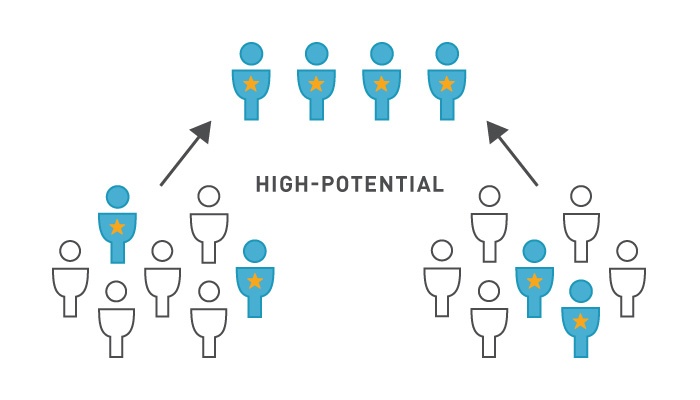4 Methods to Optimize Your High-Potential Programs
As we mentioned last week, high potential initiatives often fall short of goals and expectations. As promised, we're giving you 4 solid ways to maximize and increase the ROI of your High Potential initiatives.
First of all, we need to take a look at the 4 common areas in which HiPo initiatives fall short:
- Poor selection criteria, putting the wrong people into HiPo programs
- Lack of effective development and pull-through
- Accountability among all involved
- Accurate and objective measurement
Through our highly-recognized work with our clients' HiPo initiatives, Vaya has established 4 key ways to ensure that you're get the most value from your HiPo programs.
1. Effectively and Objectively Identify High-Potential Employees
The more robust you can make your selection process, the more confidently you can ensure that the right talent is being selected. Past performance and a good recommendation from the supervisor should not be the only high-potential criteria. More objective criteria such as personality data, structured interviewing, and even feedback from peers can also provide helpful insights.
From our research, we have found that an individual’s aspiration to assume leadership positions, their ability to learn, and their fit with the organization’s culture are necessary high potential criteria. What also differentiates HiPos from the average employee is their people agility, their inclination to help others, and ability to create a sense of community among their team.
2. Perform A Talent Assessment
After entering the high-potential program, it is important that your HiPos have a clear starting point to work from. A thorough day-one talent assessment is important, as it helps them level set and zero in on their key strengths, gaps, and opportunities that need to be addressed to reach the next level. This provides an important foundation to build from as participants continue their individual development.
High-potential assessment can be done formally through structured assessment centers, behavioral interviewing, and simulations to measure specific skills. At a broader level, assessment provides a deeper understanding of group trends that can also lead to better direction around learning initiatives.
3. Maintain Continuous High-Potential Development
While it’s very important to identify the right high-potential employees, it is also necessary to keep the them motivated toward their development. The HiPos who take concrete steps to build key skills are more successful at progressing to the next level, as opposed to those who feel entitled just upon entering the program and do little to focus on their growth.
Organizations should provide resources to help high-potential employees receive this type of continuous development. Following the 70-20-10 rule, with 70% of learning being from on-the-job experiences (20% learning from others and 10% formal training), organizations should focus on providing HiPos opportunities that are aligned with where they see themselves progressing. For example, stretch assignments, special projects, interim roles, and rotations are ways to achieve that goal.
The other critical aspect that organizations should invest in is having Individual Development Plans (IDP) for each HiPo. There should be a method to track these IDPs (e.g. follow-up coaching meetings, online tracker/portal). Other activities could include mentorship programs and equipping both HiPos and their managers with a resource library that includes specific action items and scenarios that allow for practice.
4. Measure and Report on Initiatives
As with any business initiative, it's important to create and measure success off of objective data that can be gathered throughout the process. It might be training hours per employee, percentage of change in employee ratings, pre/post training surveys, or any other number of metrics. The key is to look for and develop actionable metrics that can help assess the results of your HiPo initiatives.
Speaking of assessing High Potentials, how effective is your HiPo program? Take The HiPo Quiz and let's talk - Vaya Group has helped multiple organizations transition their HiPo programs into a competitive advantage!






